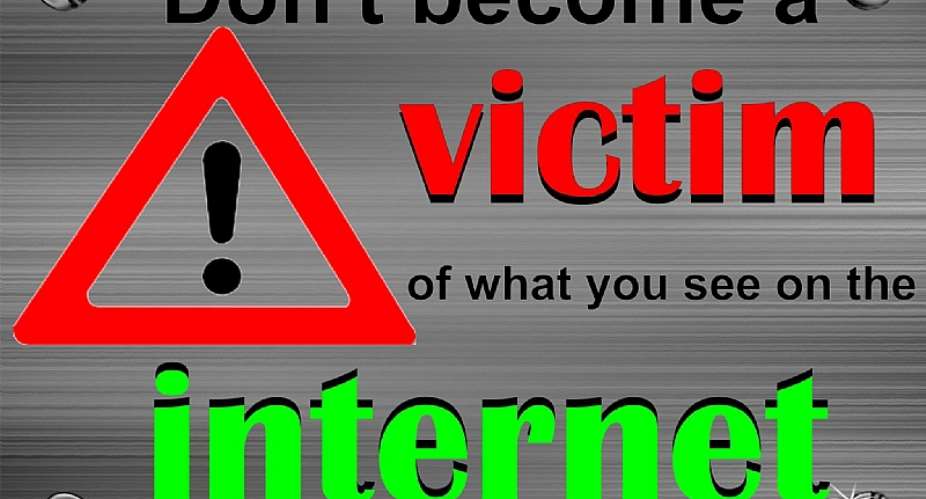Child Online Protection – COP has been in the spotlight for some time now and in 2015 we proved to everybody why it is a challenge for policy makers. We previously made recommendations for some key sectors (Ministry of Communications and the Ministry of Gender, children and Social Protection) to get involved in our effort to put COP at the top of their to do list helping to make the cyber world a better place for especially Ghanaian children and young people everywhere.
This has not happened. Our disappointment stems from the fact that seven months down the line, not a single practical action has been taken by the respective ministries to safeguard children and young people online. COP was mentioned in the 2016 budget statement but little concrete action has been taken since. Should we wait to see things get out of hand before measures are put in place to right the wrongs? It’s about time we stop the firefighting approach to dealing with real life issues concerning young people.
JI and partners are of the view that the child should be fully prepared to live an individual life in society, and brought up in the spirit of the ideals proclaimed in the Charter of the United Nations, and in particular in the spirit of peace, dignity, tolerance, freedom, equality and solidarity. Although this document was written before children started using the Internet, it spells out protections and rights of freedom of expression and access to media for children around the world. Analyzing the rights contained within Ghana’s Children’s Act of 1998(-Act 560), one begins to appreciate that these two documents are framed around 3 ‘P’s –protection, provision and participation. Both documents should work in tandem but that is not what we see in Ghana.
Just because the UNCRC and our Children’s Act predate the commercialization of the Internet doesn’t mean that they can’t be applied to the digital age. Other Bills have been interpreted to guarantee people the freedom they require from the law and this should be the case for UNCRC and the Children’s Act. Both are living documents and should be subject to modern interpretation.
To make these relevant to the times saw the passing of Resolution 200 (BUSAN 2014):”Through the ITU 2014 Plenipotentiary Conference Resolution 200 on ‘Connect 2020 Agenda for global telecommunication/ICT development’, ITU Member States committed to ensure the important role of ICTs as a key enabler and promotor to achieve the Post-2015 Development Agenda, and to acknowledge them as an important tool to achieve the overall SDGs.
So for us JI and partners what Ghana needs to do now in partial fulfilment of Resolution 200 would be to reduce the risks of the digital revolution while enabling more children to take advantage of its unprecedented opportunities to communicate, connect, share, learn, access information and express their opinions in a safe environment without fear.
Owing to the fact that Goal 3 of the Resolution 200 entreats member countries to be able to manage challenges resulting from telecommunication/ICT development’, it will be imperative for Ghana to start the discussion around: Firstly children’s equal and safe access to digital media and ICT and second on children’s empowerment and engagement through digital media.
The solution is right here with us. There is nothing as powerful as empowering children, particularly when such empowerment is founded on a balanced approach between protection and participation, where children are the drivers of a safe and participatory digital world in which all stakeholders play their different roles effectively.
Secondly, ensure equal access to digital media and ICT by technology infrastructure that ensures safe, free or low-cost access targeted at different groups, particularly girls, children with disabilities and other vulnerable groups of children.
In addition to the above, build capacities of all children, parents, teachers and all those working with and for children in good quality digital education.
Finally, provide training for law enforcement agencies and others working with children while ensuring awareness raising for children and adults of all the potential risks. Let children play a key role in protecting themselves and their peers against the risks.
These recommendations may not do it all but it’s an important step toward updating the interpretation of the UNCRC and the Children’s Acts so that rights that are guaranteed offline are also applied online.
Contact: Awo Aidam Amenyah
Executive Director, J Initiative
027 200 1006, [email protected]





 Dumsor: Don't rush to demand timetable; the problem may be temporary — Atik Moha...
Dumsor: Don't rush to demand timetable; the problem may be temporary — Atik Moha...
 Space X Starlink’s satellite broadband approved in Ghana — NCA
Space X Starlink’s satellite broadband approved in Ghana — NCA
 2024 election will be decided on the grounds of the economy; choice of running m...
2024 election will be decided on the grounds of the economy; choice of running m...
 Dumsor: We're demanding less; just give us a timetable — Kwesi Pratt to ECG
Dumsor: We're demanding less; just give us a timetable — Kwesi Pratt to ECG
 Do I have to apologise for doing my security work, I won’t – Simon Osei-Mensah r...
Do I have to apologise for doing my security work, I won’t – Simon Osei-Mensah r...
 All my businesses have collapsed under Akufo-Addo — NDC Central regional chair
All my businesses have collapsed under Akufo-Addo — NDC Central regional chair
 Military, Prison Officers clash in Bawku, three injured
Military, Prison Officers clash in Bawku, three injured
 GRA-SML contract: MFWA files RTI request demanding KPMG report
GRA-SML contract: MFWA files RTI request demanding KPMG report
 Court threatens to call second accused to testify if NDC's Ofosu Ampofo fails to...
Court threatens to call second accused to testify if NDC's Ofosu Ampofo fails to...
 Family accuses hospital of medical negligence, extortion in death of 17-year-old...
Family accuses hospital of medical negligence, extortion in death of 17-year-old...
